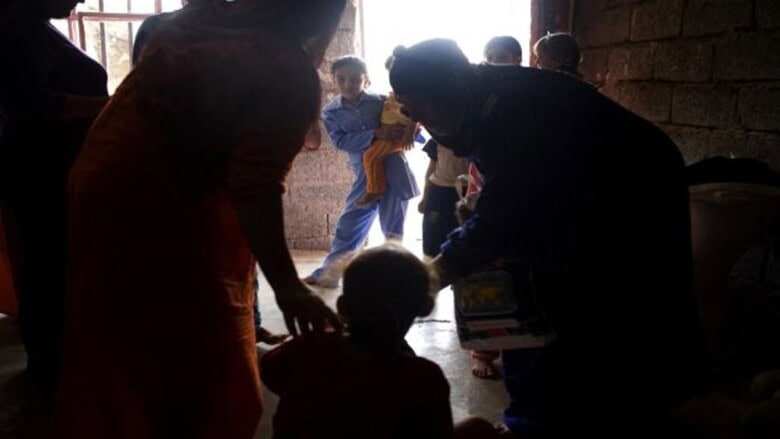The issue of female genital mutilation may seem unfamiliar to Iraqis, as it is associated with practices in Egypt, Somalia, Djibouti, and other African Arab countries. However, recent statistics reveal an unprecedented prevalence of this “inhumane” practice in Iraq, which falls under gender-based violence. Most of these cases occur in the Kurdistan region.
Female genital mutilation harms girls and women on multiple levels, causing psychological and physical trauma and leaving both immediate and permanent health consequences. For example, children born to women who have undergone female genital mutilation are more susceptible to neonatal deaths. A “shocking” report by UNICEF released today reveals that Iraq ranks seventh in the Arab world and 25th globally for female genital mutilation.
More than 660,000 Iraqi females were subjected to female genital mutilation by 2018, with 630,000 in Kurdistan and 30,000 in central and southern regions, according to the Central Statistical Organization.
Over 230 million girls and women worldwide have undergone female genital mutilation, representing a 15% increase or an additional 30 million affected individuals compared to data from eight years ago. The highest burden of this global issue is in African countries, with over 144 million cases, followed by over 80 million cases in Asia and over 6 million cases in the Middle East.
Female genital mutilation is also practiced in small, isolated communities and among diaspora populations worldwide.
Despite millions of females surviving this procedure, they live with its consequences, including severe pain, acute bleeding, long-term physical and psychological effects, including infection, infertility, and post-traumatic stress disorder.
Female genital mutilation poses a significant challenge in rapidly growing populations in countries where the practice is prevalent, highlighting the need to strengthen prevention efforts to protect the increasing number of females at risk.
In Iraq, the Family Violence Bill has been pending in parliament for years without approval, and it does not include any provision to ban female genital mutilation.
Although the Kurdistan Parliament criminalized this practice in Article 6 of the Family Violence Law in 2011, discussing women’s privacy and bodies in a conservative society like Kurdistan was challenging. When parliament was asked to discuss a law criminalizing female genital mutilation, the issue was repeatedly postponed due to its sensitivity. Consequently, the prevalence of female genital mutilation in Kurdistan decreased by half, according to a UNICEF report covering 29 countries where the practice is prevalent.
The German NGO Wadi took on the task of raising awareness and working to stop female genital mutilation in Kurdistan but failed to obtain a fatwa from the Regional Fatwa Council. It is worth mentioning that a report by Human Rights Watch stated that female genital mutilation is predominantly practiced in Iraqi Kurdistan. Since 2003, the United Nations has designated February 6 of each year as the International Day of Zero Tolerance for Female Genital Mutilation.





